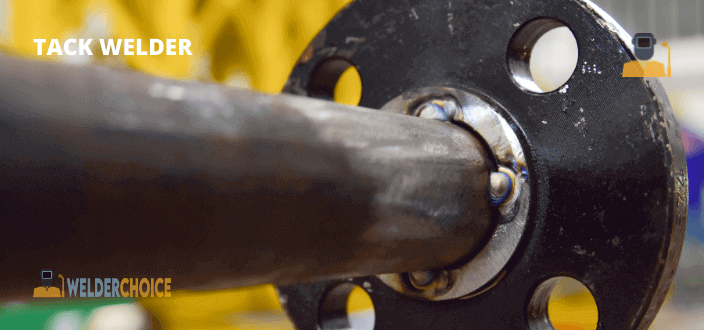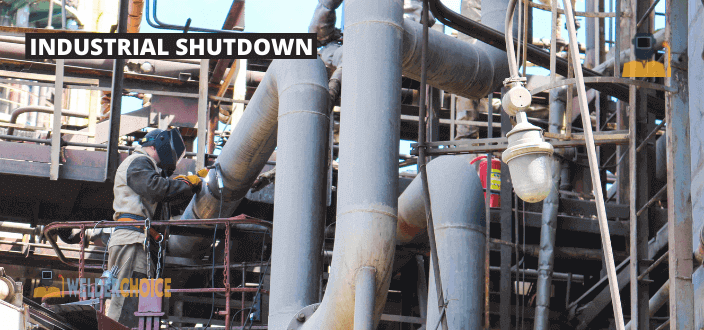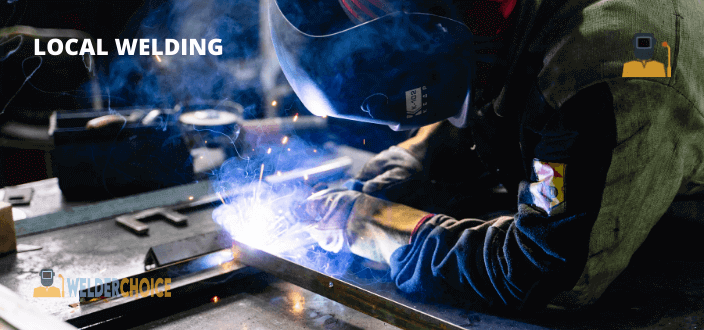Welding is a vast field in which different types of welding jobs and career that is needed in a wide range of industries around the world.
Other ways of fusing metal components, such as bolting or riveting, have lower strength than welding.
Because a faulty weld could result in a catastrophic accident, welding is a skill that requires training and continual review.
In this post, we’ll go through 17 of the popular types of welding jobs.
Welding Used In A Variety Of Work
Employers are searching for certified welders who are up to date on the latest technologies.
Welding skills may be transferred easily between enterprises and nations. Once you’ve been certified in one state, it’s relatively easy to work in another. Welding talents can be transferred from one industry to another because the underlying capabilities are the same.
Welding is used in almost all sectors in some way.
Welding occupations include industrial processes, construction, ship and boat building, automobile manufacturing and repair, agricultural equipment, industrial maintenance and repair, oil and gas pipelines, and a number of other industries.
Some of the welding careers available to welders include welder, assembler, machine operator, construction or manufacturing welding technicians or supervisors, welding inspector, engineer, robotics repair and maintenance, technical sales, project management, and specialist welding sectors.
A certified welder can be trained in vocational or online welding programs and employed in as little as seven months in practically every state in the United States.
There are various welding career options available to a trained welder, all of which can lead to higher-paying jobs. This is frequently accomplished without the need for extensive additional schooling.
Let’s take a look at some of the various types of welding jobs that are available.
17 Different Types of Welding Jobs
The following are the most common types of welding jobs and careers:
1. Tack welder
A tack weld is a small weld that holds things in place and ensures proper alignment while the main weld is being finished. Instead of holding big pieces of metal in place while welding them together, a series of tiny tack welds can be utilized to reinforce and stabilize them until the main weld is done.

A tack welder’s role is to properly position the components and apply a series of tiny tack welds so that a lead welder can finish the weld quickly. Tack welders are often used to join pipes and sheet metals in the construction industry.
2. Welding Instructor
Welding is a skill that requires a lot of training and certification. As a result, welders usually begin their careers by attending a welding school. Someone has to teach them, and you would be that person as a welding instructor. Welding instructors must stay current on new methods and be able to explain complicated welding processes to students who are unfamiliar with them.
3. Underwater Welding
Underwater welding is a specialized field that requires diving training. Underwater welders perform duties like fitting and rigging, non-destructive testing and inspection, underwater photography, and underwater cutting with heavy equipment.

As a result, most underwater welders must be qualified in accordance with AWS D3.6 and pass a physical examination. Underwater welders are in significant demand in the oil and gas pipeline industry, as well as the naval and dock industries in North America.
Commercial divers and underwater welders earn a mean (average) hourly wage of $26.32 and a mean yearly wage of $54,75, according to the Bureau of Labor Statistics.
If that’s not enough, consider that the top 10% of underwater welder’s salary can make up to $93,910 each year.
Related Post: Undeswater welding hazards
4. Welder Helper
When you first decide to pursue welding professionally, you probably don’t have many certifications or experience. In this circumstance, your first job will most likely be as a welder’s assistant. As supervised by the lead welders, you’ll be cleaning up and preparing the metal before it’s welded, as well as cleaning up afterward. This is only a stepping stone to more lucrative jobs in the field.
5. Welding Jobs That Require Travel
A welding job can be done anywhere, regardless of geography or weather conditions.
Underwater welders are required for pipelines, and welders are required for military transport and weapons in desert and hilly places.
Cable and satellite companies are looking for welders who can work in space. Cruise ships, racing teams, and industrial facilities all require welders, and they may be found all around the world.
Welders with specialized training and a desire to travel can earn a lot of money while touring the world.
6. Military Welder Scope
The military of the United States is active all over the world.

Welders are needed to maintain, build, and repair metal weapons, infrastructure, and vehicles used to aid troops. Military support welders can work at local military installations or go to dangerous regions all over the world.
Military support welders can earn up to $160,000 per year or more due to the danger and risk involved in the job.
7. Industrial Shutdown
Shut-down welders work for a certain company in a given industry and travel from plant to plant.
In order to keep the facility working smoothly, they work to temporarily shut down plants while industrial welds on industrial pipes are inspected and repaired.

A job at any specific facility can last anywhere from a week to many months, depending on the size of the plant and the extent of the work.
An industrial shutdown welder might work in oil and gas refineries, chemical facilities, power plants, water treatment plants, and industrial manufacturing plants, to name a few.
A factory shutdown welder’s hourly wage ranges from $34 to $35, or $71,620 to $175,000 per year. They work on the road for six months of the year, with only a few days off. This job has the added bonus of allowing you to take time off for the remaining six months of the year.
8. Ship Building and Repair
Welders who build, examine, and repair ship welds on military vessels, cargo ships, research vessels, and other vessels travel from shipyard to shipyard in different ports across the world to finish a contract.
They often reside in villages made up of welders from the shipyard. They frequently go from shipyard to shipyard.
A job in a shipyard might last anywhere from a month to many years, depending on the size of the contract to be completed. The welder may work on the construction of new ships or the upkeep of existing ones.
Because welders in this sector must travel frequently, they earn a lot of money. According to the Bureau of Labor Statistics, welders in the ship- and boat-building business can earn $22.35 per hour or $46,480 per year.
9. Onboard Ship Maintenance and Repair
When most cruise lines and passenger ships go to all of their destinations throughout the world, welders are a permanent component of the crew.
Due to a large number of passengers on board, these ships must be meticulously maintained, and any necessary repairs must be completed while the ship is at sea.
Aside from a decent income and the possibility to travel across the world, welders on passenger ships receive a number of bonuses. They are provided with free housing, board, and meals, as well as access to all of the amenities offered to passengers during their free time.
10. Motorsports
Welders play an important role in NASCAR and other motorsport racing teams’ pit crews. They travel the country with their racing team.

In most motorsports, everything in a car or bike is made of metal and must be specially built. In addition to making cars and bikes, welders are needed to repair and maintain them.
Welders on motorsport racing teams require specific training and are handsomely compensated because weld failure at high speeds can be disastrous.
11. Pipelines Welding Job
Oil and gas firms, natural gas companies, electric and water utilities all need pipelines to transport their products throughout the United States and around the world. Welders who work on these pipes go to far-flung regions to build and repair them.

Welders that work in this specialized job often live and work on-site, and they are in high demand. Physical exertion is required, and the work can be hazardous at times. A pipeline’s job contracts might last anywhere from a few weeks to six months or longer.
Welders of industrial pipelines can make a lot of money and travel. Pipeline welders may expect to make an average of $31.09 per hour, or $62,000 per year, with a high level of job security.
Related Post: Best pipeline welders
12. Local Welding Jobs
If you choose to stay put or have other responsibilities that keep you close to home, there are still plenty of options for welders.

13. Construction
Welding is a vital technique in the construction industry.
Thousands of welders are needed for building and bridge construction projects, as well as civil engineering projects involving the use of metal I-beams to form massive commercial buildings and highway bridges.
Welders on these projects frequently work hundreds of feet in the air on outdoor construction platforms, putting their lives in grave danger. Welders in this field can earn an average of $18.86 per hour, or $39,230 per year.
14. Manufacturing
According to the Bureau of Labor Statistics, the majority of the approximately 316,000 welders employed in the United States work in the manufacturing industry.
The automobile and trucking industries account for only a minor portion of the manufacturing sector. Any industry that produces mostly metal-based products is included.
Manufacturing includes agriculture, mining, gardening, telecommunications, and other industries that require machinery metal gadgets, and gears.
According to the Bureau of Labor Statistics, factory welders can earn between $18.37 and $19.26 per hour or $38,200 to $40,070 per year.
15. Boiler Welder
Welders who work with plates and tubes to produce steel parts and pipelines are known as “boilermakers.”

They work on a variety of projects, including bridges, blast furnaces, power plants, ships, engineering projects, and commercial factories. Commercial steam and hot water pipes, as well as boiler tanks and other related equipment, are repaired, re-piped, and re-tubed by them.
Welders for boilers, tanks, and shipping containers work an average of $19.39 per hour or $40,300 per year.
16. Industrial Equipment Maintenance
Every industry makes use of machinery, equipment, and facilities. Welders are in charge of regularly maintaining and repairing machines, equipment, and facilities in order to keep production running smoothly. Industrial maintenance welders are typically local residents who don’t need to travel.
According to the Bureau of Labor Statistics, a welder in industrial maintenance can expect to make an average of $20.24 per hour or $42,090 per year.
17. Oil Rigs
Oil and gas companies require workers to work on a fixed oil rig offshore. Oil rigs are used for both drilling for oil and preserving oil reserves.

Because they live and work on the rig for months at a time, welders on oil rigs work for long periods of time before you leave. Welders on an oil rig can expect to make over $62,000 per year.
It’s included in “local” jobs because you’re typically living nearby and staying in one location. It does, however, necessitate being away from home for long periods of time.
Earning Opportunities
In the United States, welders earn between $24,490 and $55,240 per year. This, of course, varies tremendously depending on the industry and location.
As you can see from the list of specialist industries above, some make a little less than others. Welders, on the other hand, earn an average yearly salary of $35,920.
If you get certified, you’ll usually end up on the higher end of the pay scale because you’ve shown more skill.
Those who work in the welding sector have a promising future. Welder job opportunities are predicted to grow at a rate of 3-4 percent each year nationwide through 2024.
Wages vary a lot based on the type of welding certification, the quality of welding, and the location of the job. On average, a certified welder can expect to earn $35 per hour or more. A certified welder who is ready to travel and work in potentially hazardous situations can make more than $100,000 per year.
Welders are required in both fixed and constantly moving locations.
Welding, regardless of your age or family position, can provide you with continuous, steady work in a manufacturing plant/warehouse or the adventure of traveling across the country or abroad from job site to job site.
Related Post: How to make money with welder
Conclusion
There are various types of welding jobs and vocations come in a wide variety. You don’t have to execute the same chores every day if you work as a welder. You may have a career in one of many intriguing industries if you’re good at your skill and willing to gain some additional education and certifications to verify your skills.
Whether you want to weld deep in the ocean, assist in the construction of rocket ships, or execute precision welds utilizing the latest and most modern robotics, there is a welding career that will satisfy you and pay you well for your time and skills. If you want the best-paying jobs, you may have to travel or take some risks, but welding can be a rewarding way to make a good living in many of these jobs and careers.

With 8 years of experience a senior welding instructor and safety equipment researcher and writes articles, reviews and guidelines on helmets and other welding and safety gears at Welder Choice, and other written works have been published in various publications.
